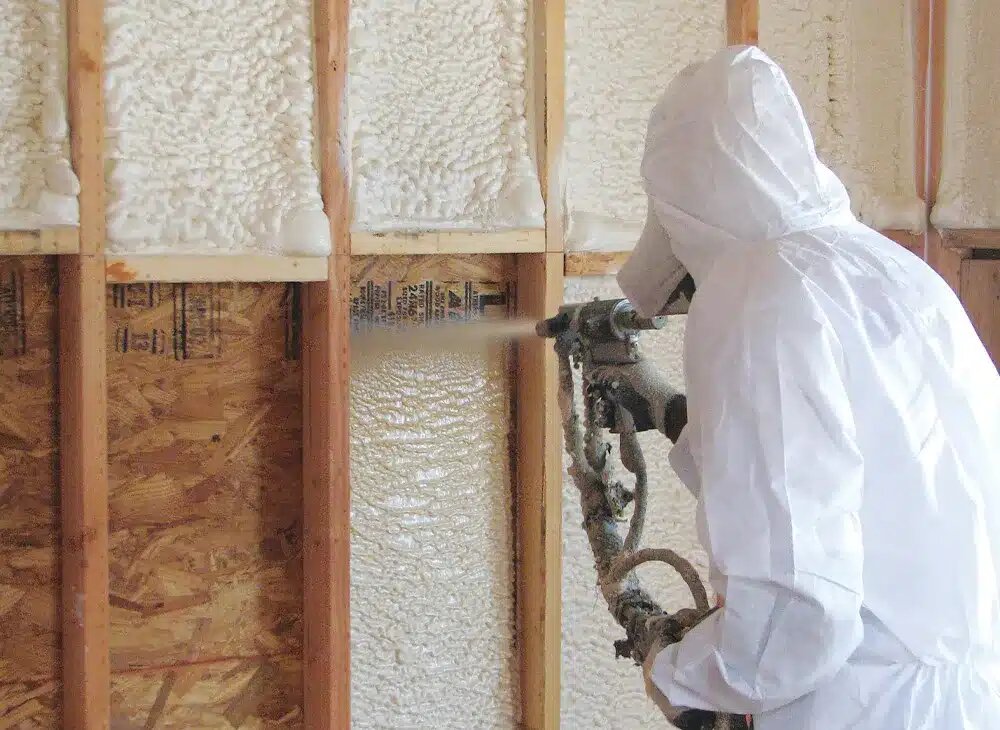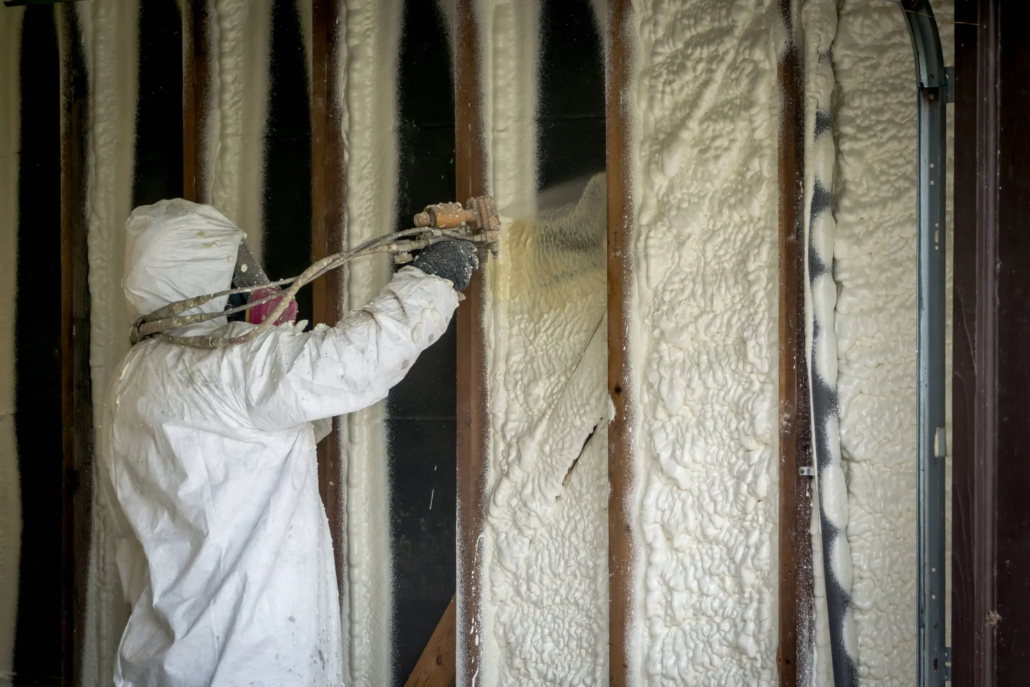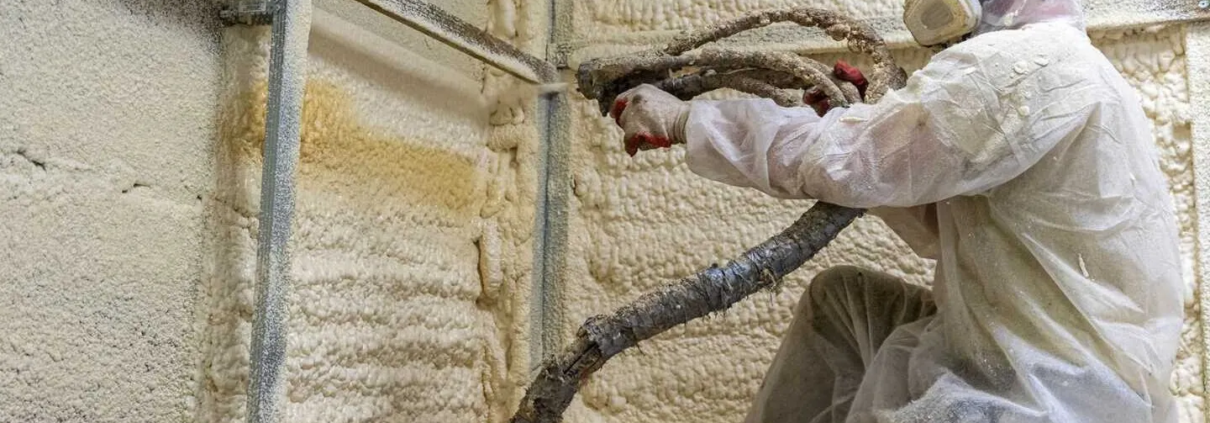Commercial Building Envelope Optimization: Advanced Insulation Strategies
A commercial building in Phoenix faces relentless heat, rising cooling costs, and performance challenges tied directly to poor insulation. When gaps, thermal leaks, or outdated materials compromise the envelope of a building, energy bills climb, comfort drops, and long-term structural wear accelerates. For both residents and business owners, these issues aren’t just inconvenient—they directly impact profitability and property value.
The good news is that advanced insulation strategies are available today, delivering results that standard options cannot match. In this article, you’ll discover how building envelope optimization through spray foam insulation and other proven methods can transform efficiency, extend HVAC life, and create lasting comfort. The insights below connect local property owners with high-performance solutions and reliable spray foam specialists in Phoenix who understand the region’s climate challenges firsthand
Advanced Insulation as the Core Solution
For commercial buildings, a fully optimized envelope means stronger thermal resistance, reduced air infiltration, and better indoor climate control. Traditional insulation types such as fiberglass or cellulose often underperform in large-scale environments, especially when air leakage remains unaddressed. This is where advanced spray foam technology delivers measurable improvement.
All Valley Insulation provides solutions engineered for durability and efficiency. With expertise in both open-cell and closed-cell foam, the team offers performance-driven installations that help Phoenix properties stay cooler, cut energy waste, and strengthen structural integrity.
Benefits of Building Envelope Optimization
- Lower long-term energy use
- Consistent interior comfort
- Moisture and mold resistance
- Added structural rigidity from closed-cell applications
- Longer HVAC system lifespan

Open-Cell and Closed-Cell Spray Foam in Commercial Settings
Different properties demand different approaches. Understanding when to use open-cell versus closed-cell insulation can determine whether a building envelope performs as expected.
Open-Cell Foam Applications
Open-cell spray foam is effective for sound control and flexibility in large commercial interiors. It creates an air seal that limits energy loss and supports comfortable, quieter spaces such as office buildings or multi-unit housing.
Closed-Cell Foam Applications
Closed-cell spray foam adds density, moisture resistance, and structural reinforcement. It’s a superior choice for exterior walls, roofing systems, and areas exposed to Phoenix’s harsh climate. Its higher R-value per inch makes it particularly effective in buildings with limited wall space but high energy demands.
Air Sealing and Thermal Barrier Systems
Even high-quality insulation fails if air leaks go untreated. Sealing gaps, cracks, and penetrations in the building envelope is a foundational step. This ensures insulation performance is maximized, HVAC systems run more efficiently, and utility costs remain under control.
Key Advantages of Air Sealing
- Prevents conditioned air loss
- Protects against dust and allergens
- Reduces strain on cooling systems
- Improves overall indoor air quality
Thermal barrier systems further support safety and efficiency. By adding fire-resistant coatings to spray foam, commercial buildings achieve compliance and maintain long-term performance without compromising safety standards.
Comparison of Insulation Strategies
Below is a breakdown comparing standard insulation with spray foam solutions:
| Insulation Type | R-Value (per inch) | Air Sealing | Moisture Resistance | Structural Support | Longevity |
|---|---|---|---|---|---|
| Fiberglass | 2.2 – 2.7 | Weak | Low | None | Moderate |
| Cellulose | 3.2 – 3.8 | Weak | Low | None | Moderate |
| Open-Cell Spray Foam | 3.5 – 3.7 | Strong | Moderate | Flexible | Long-term |
| Closed-Cell Spray Foam | 6.0 – 7.0 | Strong | High | Strong | Long-term |
This comparison highlights why high-performance insulation from experienced spray foam teams delivers greater ROI in commercial projects.
Integrating Blown-In and Dense Pack Cellulose for Hybrid Solutions
Spray foam isn’t always the only answer. In some buildings, hybrid insulation strategies create balance between cost, efficiency, and noise control. Dense pack cellulose and blown-in options work well in retrofit projects, filling cavities and supporting energy retention without major structural modifications.
By combining these systems with spray foam air sealing, property owners achieve efficiency without sacrificing flexibility or budget considerations. Foam insulation consultants often recommend this approach for older Phoenix properties undergoing phased upgrades.
Local Spray Foam Experts for Phoenix’s Climate
Phoenix summers bring extreme temperatures, placing high demand on cooling systems. Commercial property owners often underestimate how much energy is lost through minor leaks or outdated insulation. Reliable foam experts in the region understand these pressures and build solutions that respond directly to the local climate.
Experienced spray foam teams apply professional-grade foam insulation designed for both new construction and retrofits. Whether insulating a warehouse, retail space, or multi-story property, the right system reduces cooling loads and supports consistent comfort year-round.

Strengthening Long-Term Building Performance
Building envelope optimization extends beyond immediate energy savings. Advanced insulation strategies directly impact long-term value and sustainability. With the right solutions, property owners achieve:
- Reduced carbon footprint from lower energy use
- Stronger building resale potential
- Less maintenance demand over time
- Occupant satisfaction from consistent comfort
Knowledgeable insulation professionals emphasize these outcomes as core benefits of investing in advanced materials rather than relying on outdated methods.
Direct Summary for Property Owners
Advanced insulation strategies provide measurable benefits for Phoenix commercial properties, from reduced energy bills to long-term structural resilience. The right balance of open-cell, closed-cell, and hybrid insulation options supports efficient cooling, stronger air sealing, and improved comfort.
Reliable Results with All Valley Insulation
All Valley Insulation delivers solutions built around building performance. As local spray foam experts, the team applies proven strategies that match Phoenix’s heat challenges and property owner needs. Call (602) 693-0968 or email info@avinsulation.net to connect with foam specialists ready to optimize your commercial building envelope today.
FAQs
What type of spray foam is best for commercial roofs in Phoenix?
Closed-cell spray foam is typically the best option for commercial roofs. It resists moisture, adds structural strength, and has a higher R-value per inch, which helps manage extreme heat.
How does spray foam compare to fiberglass insulation in commercial projects?
Spray foam provides both insulation and air sealing in one application. Fiberglass may insulate but does not stop air leakage, which makes it less effective in hot climates like Phoenix.
Can spray foam insulation help reduce noise in office buildings?
Yes. Open-cell spray foam is particularly effective at sound absorption, making it a smart choice for offices, apartments, and shared commercial spaces.
Is spray foam insulation safe for long-term building use?
When installed by experienced foam specialists, spray foam insulation is safe, durable, and contributes to fire code compliance when paired with a thermal barrier system.
What role does air sealing play in commercial building efficiency?
Air sealing eliminates leaks that compromise insulation performance. This reduces wasted energy, improves indoor comfort, and helps HVAC systems operate more efficiently.
Reviewer: Charlotte King reviewed this article based on her 7 years of spray foam experience, contributing thoughtful advice about building customer relationships and improving local visibility.




Leave a Reply
Want to join the discussion?Feel free to contribute!